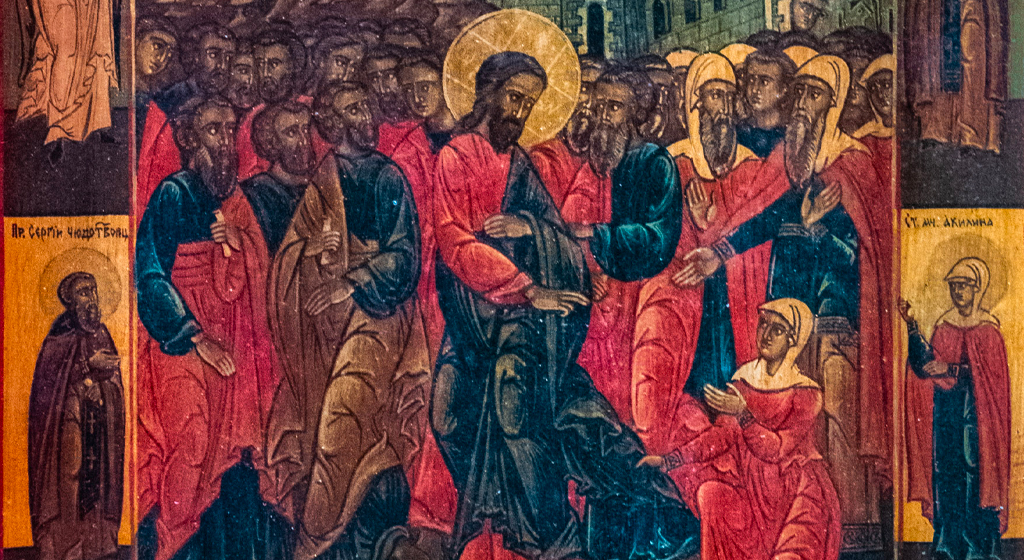Memory of the Poor
Memorial of Saint Augustine of Canterbury (+605 ca.), bishop, father of the English church.
Reading of the Word of God
Alleluia, alleluia, alleluia
This is the Gospel of the poor,
liberation for the imprisoned,
sight for the blind,
freedom for the oppressed.
Alleluia, alleluia, alleluia
Mark 10,17-27
He was setting out on a journey when a man ran up, knelt before him and put this question to him, 'Good master, what must I do to inherit eternal life?' Jesus said to him, 'Why do you call me good? No one is good but God alone. You know the commandments: You shall not kill; You shall not commit adultery; You shall not steal; You shall not give false witness; You shall not defraud; Honour your father and mother.' And he said to him, 'Master, I have kept all these since my earliest days.' Jesus looked steadily at him and he was filled with love for him, and he said, 'You need to do one thing more. Go and sell what you own and give the money to the poor, and you will have treasure in heaven; then come, follow me.' But his face fell at these words and he went away sad, for he was a man of great wealth. Jesus looked round and said to his disciples, 'How hard it is for those who have riches to enter the kingdom of God!' The disciples were astounded by these words, but Jesus insisted, 'My children,' he said to them, 'how hard it is to enter the kingdom of God! It is easier for a camel to pass through the eye of a needle than for someone rich to enter the kingdom of God.' They were more astonished than ever, saying to one another, 'In that case, who can be saved?' Jesus gazed at them and said, 'By human resources it is impossible, but not for God: because for God everything is possible.'
Alleluia, alleluia, alleluia
The Son of Man came to serve,
whoever wants to be great
should become servant of all.
Alleluia, alleluia, alleluia
This passage from the Gospel is among those that have had the greatest impact on the lives of many men and women who set on following Jesus. These words still resound strongly to our generation. There are many people who are "running," looking for someone who can give them happiness and show them the way. Often it is a race that ends up in the desert or, even worse, at the bottom of a ravine. The man we read about in the Gospel stops running when he kneels before Jesus. He addresses him as "good," but Jesus corrects him: "Why do you call me good? No one is good but God alone." With this answer, which may seem exaggerate, Jesus ridicules the way we all insist on keeping a clear conscience and thinking we are good people when in truth, this is an excuse not to change our hearts or our lives. Even the Pharisee felt he was good and righteous when he went to pray to the Temple, but he went back home as he was before, not forgive by Gd. That man had indeed kept the commandment. And he could feel justified. The problem for the believer is not feeling justified but following the Lord with humility and decision. Every day, Jesus "looks at us and loves us" so that we won't hold back the riches we have accumulated, which weigh down our lives and slow down our following of the Gospel. The man chose his wealth and went away sad. Sadness is indeed often a consequence of selfishness. The true vocation of the disciple is to follow Jesus, walking behind him and living as he does. If we want to follow him our lives cannot be tied to wealth.
